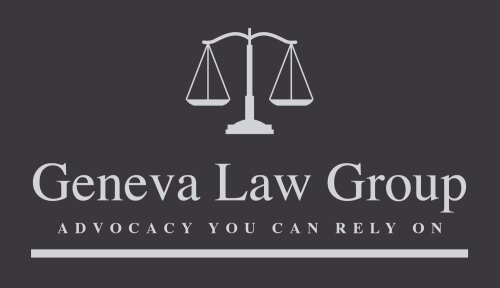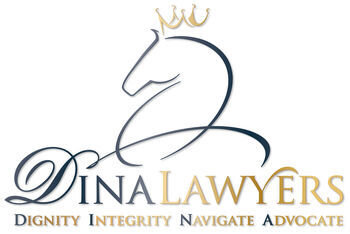Best Juvenile Law Lawyers in Sydney
Share your needs with us, get contacted by law firms.
Free. Takes 2 min.
List of the best lawyers in Sydney, Australia
About Juvenile Law in Sydney, Australia
Juvenile law in Sydney, Australia, primarily deals with legal issues involving young people, typically those under the age of 18. This area of law focuses on balancing the need for accountability with the recognition that children and adolescents are still developing both mentally and emotionally. The approach is often centered around rehabilitation rather than punishment, emphasizing the best interests of the child. In Sydney, the Children's Court handles most matters involving juveniles, including criminal cases, care and protection issues, and Apprehended Violence Orders (AVOs) involving minors.
Why You May Need a Lawyer
There are several situations in which you might require legal assistance in the field of juvenile law. If a young person is accused of committing a crime, having a lawyer can ensure their rights are protected throughout the process and that they receive a fair trial. Legal guardians facing child protection investigations can also benefit from legal advice and representation to maintain their custodial rights. Additionally, legal guidance can be crucial in family disputes where the welfare of the child is in question. Having the support of a legal professional can help navigate these complex and emotionally charged situations effectively.
Local Laws Overview
The key aspects of juvenile law in Sydney include the differentiation between child and adult offenders and the special procedures in place at the Children's Court. The Young Offenders Act 1997 provides alternatives to formal court proceedings, such as warnings and youth justice conferences. The Act aims to divert young people from the court system and promote rehabilitation. Additionally, under the Children and Young Persons (Care and Protection) Act 1998, issues related to the care and protection of minors are addressed, ensuring their safety and welfare are prioritized. Legal principles emphasize the need to consider the best interests of the child, their right to express their views, and the importance of education and development.
Frequently Asked Questions
What age is considered a juvenile in Sydney?
In Sydney, a juvenile is typically considered to be someone under the age of 18. Legal proceedings for juveniles can apply to individuals up to this age.
What is the role of the Children's Court?
The Children's Court in Sydney deals with matters involving individuals under 18, including criminal cases, care and protection issues, and AVOs. The court's objective is to provide fair and just decisions while focusing on rehabilitation.
Can a minor receive a criminal record?
In certain circumstances, a minor can receive a criminal record in Sydney. However, there are efforts to reduce the long-term impact on young individuals through diversion programs and other rehabilitative measures.
What are diversion programs?
Diversion programs, such as warnings, cautions, and youth justice conferences, are designed to keep young offenders out of the formal legal system, offering alternative solutions to address juvenile offenses.
How does a juvenile's right to legal representation work?
Juveniles have the right to legal representation, and it is highly advisable for them to have a lawyer to ensure their rights and interests are fully protected throughout legal proceedings.
What happens if a juvenile fails to comply with a court order?
If a juvenile fails to comply with a court order, additional consequences may follow, which could involve more serious legal actions. Having legal advice can help navigate these situations.
How are parents involved in juvenile legal proceedings?
Parents or guardians are typically involved in the legal proceedings, as they are responsible for the welfare of the child. They may need to attend court hearings and comply with any orders concerning their child.
Can juveniles be tried as adults?
In rare and extreme cases, juveniles may be tried as adults, but this involves specific circumstances and considerations concerning the nature of the offense and the juvenile’s age.
What should a minor do if contacted by police?
It is important for minors to remain calm, provide their name and age, and request to speak with a lawyer or a responsible adult before saying or doing anything potentially incriminating.
What options exist for appealing a decision in the juvenile court system?
There are procedures in place to appeal decisions made within the juvenile court system. Legal counsel can provide guidance on whether an appeal is a viable option and how to pursue it.
Additional Resources
To assist those seeking further information or support within juvenile law in Sydney, several resources are available:
- The Children's Court of New South Wales website provides insights and resources about court processes involving juveniles.
- Legal Aid NSW offers free legal advice for young people and their families involved in juvenile law issues.
- The Youth Hotline is targeted towards young people needing immediate legal support or guidance.
- Community Legal Centres in Sydney provide various legal services and can help connect individuals to juvenile law specialists.
Next Steps
If you require legal assistance in the area of juvenile law, the first step is to contact a lawyer specializing in this field. They can offer advice, explain your options, and represent your interests in any legal proceedings. It is often beneficial to seek a consultation to understand your specific needs and the potential legal strategies tailored to your circumstances.
If cost is a concern, reach out to Legal Aid NSW or a local community legal center for potentially free or reduced-cost legal services. It's crucial to act promptly, as legal matters involving juveniles can have significant consequences for their future.
Lawzana helps you find the best lawyers and law firms in Sydney through a curated and pre-screened list of qualified legal professionals. Our platform offers rankings and detailed profiles of attorneys and law firms, allowing you to compare based on practice areas, including Juvenile Law, experience, and client feedback.
Each profile includes a description of the firm's areas of practice, client reviews, team members and partners, year of establishment, spoken languages, office locations, contact information, social media presence, and any published articles or resources. Most firms on our platform speak English and are experienced in both local and international legal matters.
Get a quote from top-rated law firms in Sydney, Australia — quickly, securely, and without unnecessary hassle.
Disclaimer:
The information provided on this page is for general informational purposes only and does not constitute legal advice. While we strive to ensure the accuracy and relevance of the content, legal information may change over time, and interpretations of the law can vary. You should always consult with a qualified legal professional for advice specific to your situation.
We disclaim all liability for actions taken or not taken based on the content of this page. If you believe any information is incorrect or outdated, please contact us, and we will review and update it where appropriate.
















